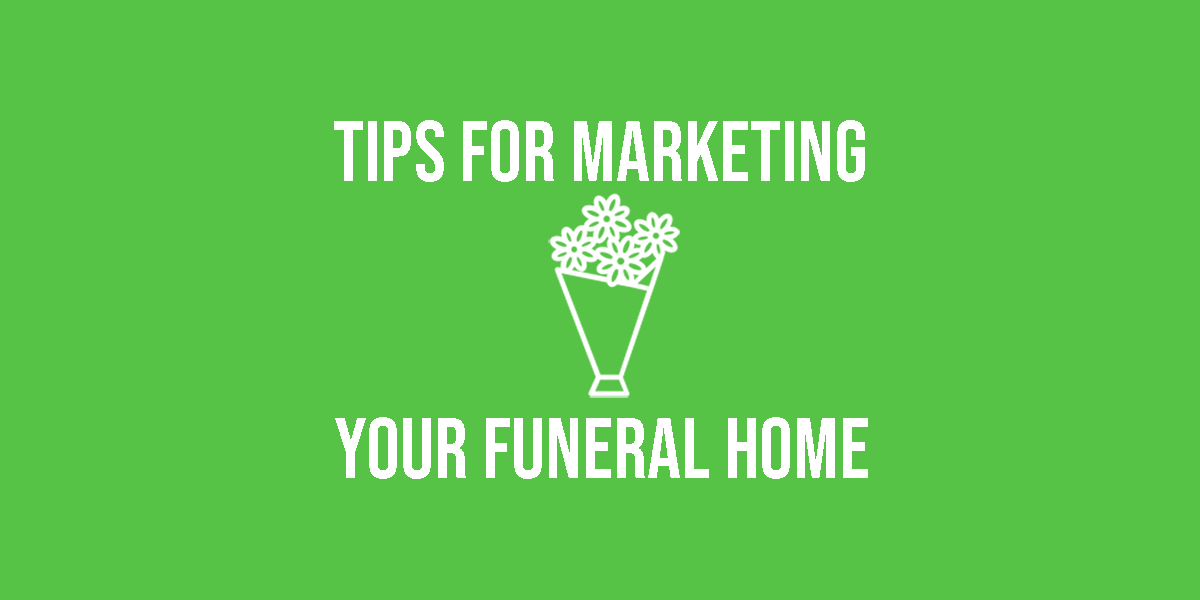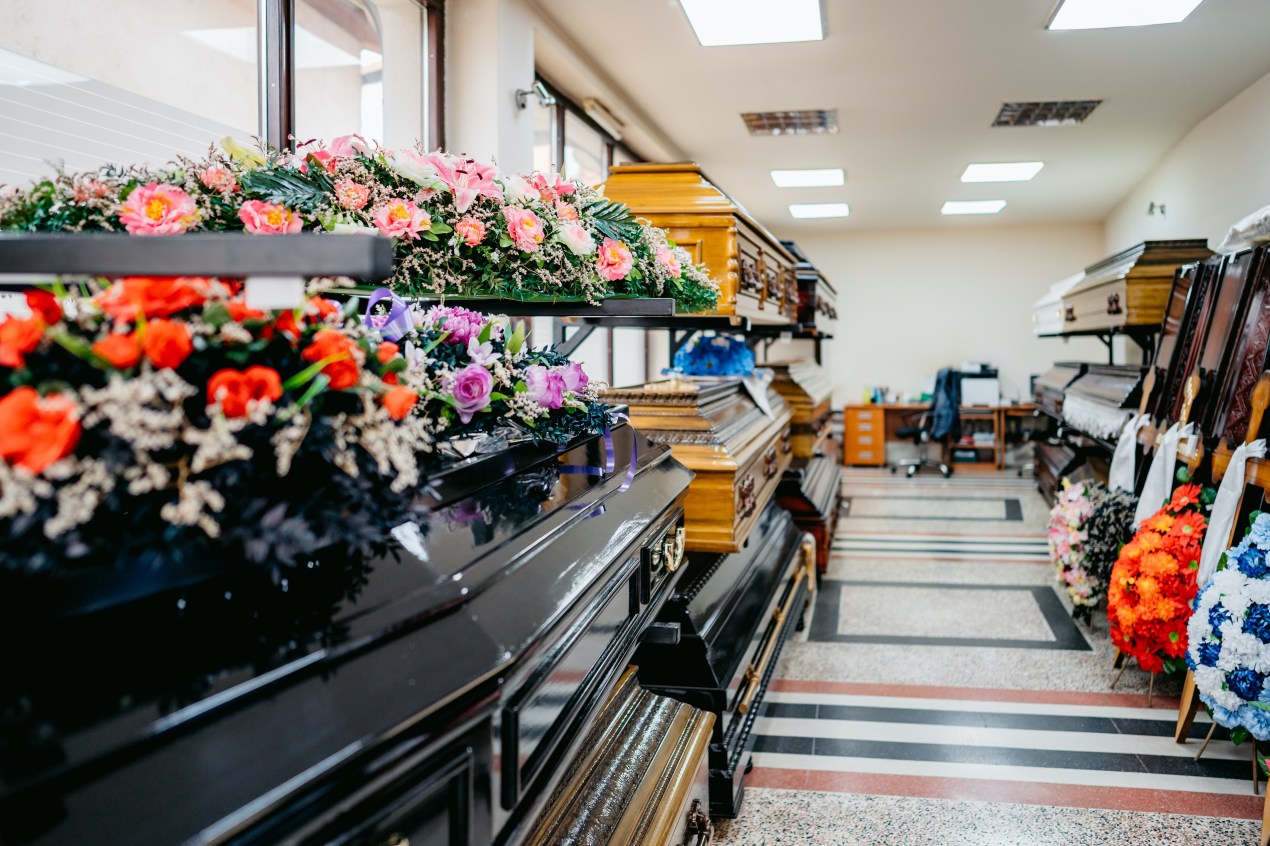Marketing a funeral home presents a unique challenge, requiring a delicate balance between professionalism, empathy, and sensitivity. Unlike traditional businesses, funeral homes must navigate the emotional weight of their services while building trust and credibility within their community. Effective branding in this industry goes beyond logos and slogans; it involves creating a compassionate and respectful image that resonates with families during their most vulnerable moments. From thoughtful outreach to digital presence, every aspect of marketing must reflect the values of care and dignity. This article explores the nuanced strategies funeral homes can employ to build a meaningful brand while honoring the gravity of their role.
Marketing a Funeral Home: A Delicate Form of Brand Building
Marketing a funeral home is a unique and sensitive endeavor that requires a balance between professionalism, empathy, and respect. Unlike other industries, funeral homes must navigate the emotional weight of their services while building a brand that instills trust and compassion. This delicate approach involves understanding the needs of grieving families, creating a comforting atmosphere, and communicating value without appearing opportunistic.
See Also Best Way to Set Up Landing Pages to Capture Email Leads?
Best Way to Set Up Landing Pages to Capture Email Leads?Understanding the Emotional Landscape
Funeral homes operate in an environment where emotions run high. Families are often in a vulnerable state, making it crucial for marketing efforts to be empathetic and respectful. The focus should be on providing comfort and support rather than aggressive sales tactics. By understanding the emotional landscape, funeral homes can tailor their messaging to resonate with their audience during difficult times.
| Key Aspect | Description |
|---|---|
| Empathy | Communicate with compassion and understanding. |
| Respect | Avoid intrusive or overly promotional language. |
| Support | Offer resources and guidance to grieving families. |
Building Trust Through Transparency
Trust is a cornerstone of funeral home marketing. Families need to feel confident that they are making the right decisions during a challenging time. Transparency in pricing, services, and processes helps build this trust. Clear communication about what to expect can alleviate some of the stress associated with planning a funeral.
See Also In Your Opinion, What Are Some of the Best Gaming Marketing Campaigns?
In Your Opinion, What Are Some of the Best Gaming Marketing Campaigns?| Key Aspect | Description |
|---|---|
| Pricing | Provide detailed and upfront cost breakdowns. |
| Services | Clearly outline available options and packages. |
| Process | Explain each step of the funeral planning process. |
Leveraging Digital Platforms Thoughtfully
In today’s digital age, funeral homes must have an online presence, but it must be handled with care. A well-designed website that provides essential information, testimonials, and resources can be a valuable tool. Social media can also be used to share uplifting stories, community involvement, and educational content, but it should never feel exploitative.
| Key Aspect | Description |
|---|---|
| Website | Ensure it is user-friendly and informative. |
| Social Media | Share meaningful content without being intrusive. |
| Testimonials | Highlight positive experiences from families. |
Creating a Comforting Atmosphere
The physical environment of a funeral home plays a significant role in brand perception. A welcoming and serene atmosphere can provide solace to grieving families. Attention to detail, such as calming decor, comfortable seating, and private spaces, can make a lasting impression.
See Also What Are Some of the Best Guerrilla Marketing Campaigns You've Ever Seen?
What Are Some of the Best Guerrilla Marketing Campaigns You've Ever Seen?| Key Aspect | Description |
|---|---|
| Decor | Use soothing colors and tasteful design elements. |
| Seating | Ensure comfort for families during services. |
| Privacy | Offer spaces for intimate gatherings and reflection. |
Community Engagement and Outreach
Funeral homes can strengthen their brand by becoming active members of the community. Hosting educational seminars, participating in local events, and offering grief support groups can demonstrate a commitment to serving beyond just business needs. This approach fosters goodwill and positions the funeral home as a trusted resource.
| Key Aspect | Description |
|---|---|
| Seminars | Educate the community on end-of-life planning. |
| Events | Participate in or sponsor local initiatives. |
| Support Groups | Provide resources for those coping with loss. |
How do you market a funeral home?

 Gen Z Broke the Marketing Funnel
Gen Z Broke the Marketing FunnelUnderstanding Your Target Audience
To effectively market a funeral home, it is crucial to understand your target audience. This includes identifying the demographics, preferences, and needs of the families you serve. Consider the following steps:
- Research local demographics: Analyze the age, income, and cultural background of your community.
- Identify common needs: Determine what services are most in demand, such as traditional burials, cremations, or eco-friendly options.
- Engage with the community: Attend local events, sponsor community programs, and build relationships with religious and cultural organizations.
Building a Strong Online Presence
In today’s digital age, having a strong online presence is essential for marketing a funeral home. Families often search for services online during their time of need. Focus on the following strategies:
See Also Best Platform/App for a Micro-Influencer Marketing Campaign?
Best Platform/App for a Micro-Influencer Marketing Campaign?- Create a professional website: Ensure your website is user-friendly, mobile-responsive, and provides detailed information about your services.
- Optimize for local SEO: Use keywords like funeral home near me and list your business on Google My Business to improve visibility.
- Leverage social media: Share meaningful content, testimonials, and updates to connect with your audience.
Offering Personalized Services
Families value personalized services that honor their loved ones uniquely. Highlighting this aspect can set your funeral home apart. Consider these steps:
- Customize funeral packages: Offer tailored options that cater to different budgets and preferences.
- Provide memorialization options: Include unique services like video tributes, memory books, or live-streamed ceremonies.
- Train your staff: Ensure your team is empathetic and skilled in creating meaningful experiences.
Utilizing Testimonials and Reviews
Testimonials and reviews are powerful tools for building trust and credibility. Families often rely on the experiences of others when choosing a funeral home. Implement these strategies:
- Request feedback: Politely ask families to share their experiences after services are completed.
- Showcase positive reviews: Display testimonials on your website and social media platforms.
- Address negative feedback: Respond professionally to any criticism and use it as an opportunity to improve.
Collaborating with Local Businesses and Organizations
Building partnerships with local businesses and organizations can enhance your funeral home’s reputation and reach. Focus on these collaborative efforts:
- Partner with florists and caterers: Offer bundled services or discounts for families who use your recommended vendors.
- Work with hospice care providers: Establish relationships with healthcare professionals who can refer families to your services.
- Support community initiatives: Sponsor local events or charities to demonstrate your commitment to the community.
What business category is a funeral home?

A funeral home falls under the service industry, specifically categorized as part of the death care industry. It provides services related to the preparation, organization, and management of funerals, memorials, and other end-of-life arrangements. Funeral homes often offer a range of services, including embalming, cremation, burial planning, and grief counseling, making them a critical part of the community's support system during times of loss.
What Services Do Funeral Homes Provide?
Funeral homes offer a variety of services to assist families during difficult times. These services include:
- Embalming and body preparation: Ensuring the deceased is presentable for viewings or services.
- Cremation services: Providing an alternative to traditional burial.
- Funeral planning: Helping families organize ceremonies, choose caskets, and arrange transportation.
- Grief counseling: Offering emotional support and resources to grieving families.
- Memorial services: Facilitating celebrations of life or other personalized tributes.
How Are Funeral Homes Regulated?
Funeral homes are subject to strict regulations to ensure ethical practices and consumer protection. Key regulatory aspects include:
- Licensing requirements: Funeral directors and embalmers must obtain proper licenses.
- Federal Trade Commission (FTC) rules: Compliance with the Funeral Rule, which mandates transparency in pricing.
- State-specific laws: Regulations vary by state, covering aspects like burial permits and cremation procedures.
- Health and safety standards: Ensuring proper handling and storage of remains.
- Consumer protection laws: Safeguarding families from unfair practices or hidden fees.
What Are the Costs Associated with Funeral Homes?
The costs of funeral services can vary widely depending on the type of service and location. Common expenses include:
- Basic service fees: Covering the funeral director's time and overhead costs.
- Embalming and preparation: Additional charges for body preservation and cosmetic work.
- Casket or urn costs: Prices range from simple designs to elaborate, high-end options.
- Venue and ceremony fees: Charges for using funeral home facilities or external locations.
- Transportation and burial: Costs for hearse services, grave plots, and headstones.
What Are the Trends in the Funeral Home Industry?
The funeral home industry is evolving to meet changing consumer preferences. Current trends include:
- Green burials: Eco-friendly options that minimize environmental impact.
- Personalized services: Customized memorials that reflect the deceased's personality and interests.
- Technology integration: Live-streaming services and online memorial platforms.
- Pre-need planning: Increasing demand for pre-paid funeral arrangements.
- Alternative memorials: Celebrations of life and non-traditional ceremonies.
What Skills Are Required to Run a Funeral Home?
Operating a funeral home requires a unique set of skills and qualifications. Essential skills include:
- Empathy and compassion: Supporting grieving families with sensitivity.
- Business management: Overseeing operations, finances, and staff.
- Regulatory knowledge: Understanding and complying with industry laws.
- Communication skills: Effectively interacting with families and vendors.
- Attention to detail: Ensuring all arrangements are executed flawlessly.
Why is advertising important to a funeral home?
Building Trust and Credibility
Advertising helps funeral homes establish trust and credibility within the community. By showcasing their services, values, and expertise, funeral homes can reassure families during difficult times. Key benefits include:
- Highlighting professionalism and experience in handling sensitive situations.
- Showcasing testimonials and reviews to build reputation.
- Demonstrating commitment to compassionate care and personalized services.
Increasing Visibility in the Community
Advertising ensures that a funeral home remains visible and accessible to the community. This is crucial for families seeking immediate assistance. Strategies include:
- Using local media, such as newspapers and radio, to reach target audiences.
- Maintaining an active online presence through a user-friendly website and social media.
- Participating in community events to foster local connections.
Educating Families About Services
Many families are unaware of the full range of services a funeral home offers. Advertising helps educate them about options such as:
- Pre-planning services to ease future burdens.
- Customizable memorial services and ceremonies.
- Support resources like grief counseling and aftercare programs.
Differentiating from Competitors
In a competitive market, advertising allows funeral homes to stand out by emphasizing their unique offerings. This includes:
- Highlighting specialized services, such as eco-friendly burials or cultural-specific ceremonies.
- Showcasing modern facilities and advanced technology.
- Promoting transparent pricing and flexible payment options.
Supporting Families During Grief
Advertising can provide comfort and guidance to grieving families by offering clear information and support. This involves:
- Sharing helpful resources, such as grief support articles or FAQs.
- Offering 24/7 availability for immediate assistance.
- Creating a compassionate tone in all communications to ease emotional stress.
What type of industry is a funeral home?

What Industry Does a Funeral Home Belong To?
A funeral home operates within the death care industry, which is a specialized sector focused on providing services related to death, burial, and memorialization. This industry encompasses a wide range of businesses and services, including funeral homes, crematories, cemeteries, and memorial product providers. Funeral homes specifically offer services such as embalming, funeral planning, and grief counseling, making them a critical part of this sector.
- Death Care Industry: Funeral homes are a key component of the death care industry, which addresses the needs of individuals and families during times of loss.
- Service-Oriented Business: They provide essential services like funeral arrangements, transportation of remains, and memorial ceremonies.
- Regulated Sector: The industry is heavily regulated to ensure compliance with health, safety, and ethical standards.
What Services Do Funeral Homes Provide?
Funeral homes offer a variety of services to assist families in honoring their loved ones. These services are designed to meet cultural, religious, and personal preferences.
- Funeral Planning: They help families organize and coordinate all aspects of a funeral, from selecting a casket to arranging the ceremony.
- Embalming and Preparation: This includes preparing the deceased for viewing or burial, ensuring they are presented respectfully.
- Grief Support: Many funeral homes provide counseling and resources to help families cope with their loss.
How Are Funeral Homes Regulated?
Funeral homes operate under strict regulations to ensure ethical practices and protect consumers. These regulations vary by country and state but generally include licensing, transparency in pricing, and adherence to health standards.
- Licensing Requirements: Funeral directors and embalmers must obtain specific licenses to practice.
- Consumer Protection Laws: Regulations ensure that pricing is transparent and that families are not exploited during vulnerable times.
- Health and Safety Standards: Funeral homes must comply with guidelines to prevent health risks, especially when handling remains.
What Are the Economic Aspects of the Funeral Home Industry?
The funeral home industry is a significant economic sector, generating billions of dollars annually. It is influenced by factors such as population demographics, cultural practices, and technological advancements.
- Revenue Streams: Funeral homes earn income through service fees, product sales (e.g., caskets, urns), and pre-need contracts.
- Market Trends: The industry is adapting to changing preferences, such as the rise in cremation rates and eco-friendly burial options.
- Employment Opportunities: It provides jobs for funeral directors, embalmers, administrative staff, and grief counselors.
How Do Funeral Homes Adapt to Cultural and Religious Practices?
Funeral homes play a crucial role in accommodating diverse cultural and religious traditions. They tailor their services to respect the beliefs and customs of the families they serve.
- Customized Services: They offer options for traditional burials, cremations, and green burials, depending on cultural or religious preferences.
- Multilingual Staff: Many funeral homes employ staff who can communicate in multiple languages to better serve diverse communities.
- Cultural Sensitivity: They ensure that ceremonies and rituals align with the family's cultural or religious expectations.
Frequently Asked Questions from Our Community
How can a funeral home build trust and sensitivity in its marketing approach?
Building trust and sensitivity in funeral home marketing requires a compassionate and respectful tone. Funeral homes should focus on creating content that addresses the emotional needs of grieving families, such as offering guidance on planning services or providing resources for coping with loss. Highlighting transparency in pricing and services can also foster trust. Additionally, showcasing testimonials from families who have had positive experiences can humanize the brand and demonstrate empathy.
What role does digital marketing play in promoting a funeral home?
Digital marketing is essential for funeral homes to reach a wider audience while maintaining a delicate and respectful approach. A well-designed website with clear information about services, pricing, and contact details is crucial. Social media platforms can be used to share educational content, such as articles on grief support or memorial planning, rather than overtly promotional material. Search engine optimization (SEO) ensures that families in need can easily find the funeral home during difficult times.
How can a funeral home differentiate itself in a competitive market?
To stand out, a funeral home should emphasize its unique values and personalized services. This could include offering eco-friendly burial options, hosting community events, or providing specialized grief counseling. Sharing stories of how the funeral home has gone above and beyond for families can also create a memorable impression. Consistency in branding, from the tone of communication to the visual identity, helps establish a distinct and trustworthy presence.
What are the ethical considerations in funeral home marketing?
Ethical marketing for funeral homes involves avoiding exploitative or pushy tactics. It’s important to prioritize the needs and emotions of grieving families over profit. Marketing materials should be honest and clear, avoiding misleading claims or hidden fees. Additionally, respecting the privacy of families and avoiding intrusive advertising during their time of loss is crucial. A focus on community support and education rather than aggressive sales strategies aligns with ethical standards.
Leave a Reply


Articles of interest